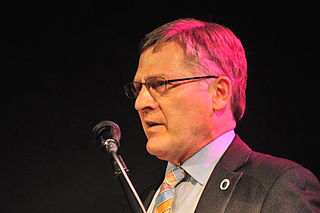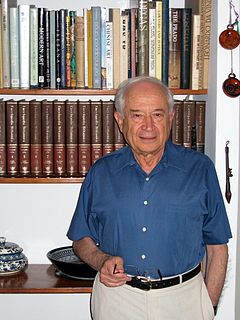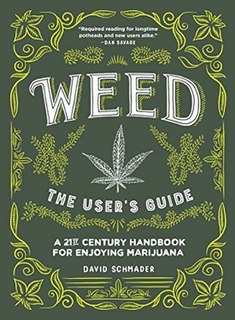The Law Enforcement Action Partnership (LEAP), formerly Law Enforcement Against Prohibition, is a U.S.-based 501(c)(3) nonprofit group of current and former police, judges, prosecutors, and other criminal justice professionals who use their expertise to advance drug policy and criminal justice solutions that enhance public safety. The organization is modeled after Vietnam Veterans Against the War. As of April 2017, they have more than 180 representatives around the world who speak on behalf of over 5,000 law enforcement members and 100,000 supporters.

Mark Albert Robert Kleiman was an American professor, author, and blogger who dealt with issues of drug and criminal justice policy. A professor of public policy at New York University, in 2015, Kleiman became the director of the Crime and Justice Program at NYU's Marron Institute of Urban Management. Kleiman was an expert in the field of crime and drug policy and authored several books in the field.

In the United States, the non-medical use of cannabis is decriminalized in 16 states, and legalized in another 15 states, as of November 2020. Decriminalization refers to a policy of reduced penalties for cannabis offenses, typically involving a civil penalty for possession of small amounts, instead of criminal prosecution or the threat of arrest. In jurisdictions without any penalties the policy is referred to as legalization, although the term decriminalization is sometimes broadly used for this purpose as well.

In the United States, the use of cannabis for medical purposes is legal in 35 states, four out of five permanently inhabited U.S. territories, and the District of Columbia, as of November 2020. Thirteen other states have more restrictive laws limiting THC content, for the purpose of allowing access to products that are rich in cannabidiol (CBD), a non-psychoactive component of cannabis. There is significant variation in medical cannabis laws from state to state, including how it is produced and distributed, how it can be consumed, and what medical conditions it can be used for.
Initiative 1068 was a proposed initiative for the November 2010 Washington state general election that would have removed criminal penalties from the adult use, possession, and cultivation of marijuana in Washington. Sponsored by Vivian McPeak, Douglass Hiatt, Jeffrey Steinborn, Philip Dawdy, initiative I-1068 sought to legalize marijuana by removing marijuana offenses from the state's controlled substances act, but failed to gather enough signatures to qualify for the ballot.

California Proposition 19 was a ballot initiative on the November 2, 2010 statewide ballot. It was defeated, with 53.5% of California voters voting "No" and 46.5% voting "Yes." If passed, it would have legalized various marijuana-related activities, allowed local governments to regulate these activities, permitted local governments to impose and collect marijuana-related fees and taxes, and authorized various criminal and civil penalties. In March 2010, it qualified to be on the November statewide ballot. The proposition required a simple majority in order to pass, and would have taken effect the day after the election. Yes on 19 was the official advocacy group for the initiative and California Public Safety Institute: No On Proposition 19 was the official opposition group.

In the United States, the use and possession of cannabis is illegal under federal law for any purpose, by way of the Controlled Substances Act of 1970. Under the CSA, cannabis is classified as a Schedule I substance, determined to have a high potential for abuse and no accepted medical use – thereby prohibiting even medical use of the drug. At the state level, however, policies regarding the medical and recreational use of cannabis vary greatly, and in many states conflict significantly with federal law.

Washington Initiative 502 (I-502) "on marijuana reform" was an initiative to the Washington State Legislature, which appeared on the November 2012 general ballot, passing by a margin of approximately 56 to 44 percent. Originally submitted to the Washington Secretary of State during the summer of 2011, enough signatures were collected and submitted by December to meet the required 241,153 signatures, sending it to the legislature. When the legislature adjourned without action in April, Initiative 502 automatically advanced to the November 2012 general ballot. It was approved by popular vote on November 6, and took effect over the course of a year, beginning with certification no later than December 6, 2012. Along with a similar Colorado measure, Initiative 502 was credited for encouraging voter turnout of 81%, the highest in the nation.

Peter S. Holmes is an American politician and attorney who has been serving as Seattle City Attorney since 2010. He was elected in November 2009, defeating incumbent Tom Carr by a comfortable margin. After winning a second term uncontested in 2013, he defeated challenger Scott Lindsay in 2017 with nearly 75% of the vote.

The legal history of cannabis in the United States began with state-level prohibition in the early 20th century, with the first major federal limitations occurring in 1937. Starting with Oregon in 1973, individual states began to liberalize cannabis laws through decriminalization. In 1996, California became the first state to legalize medical cannabis, sparking a trend that spread to a majority of states by 2016. In 2012, Washington and Colorado became the first states to legalize cannabis for recreational use.

Uncle Ike's Pot Shop is an establishment in Seattle, Washington, licensed by the Washington State Liquor and Cannabis Board to sell cannabis to the public. It opened on September 30, 2014 and was the second cannabis retailer in Seattle, after Cannabis City. As of 2016 it led the state of Washington in cannabis retail sales at over $1 million per month. The proprietor is Ian Karl Eisenberg, aka "Uncle Ike". The business is both praised for being the first to inform consumers about pesticides in their product, and criticized for contributing to gentrification of the neighborhood it is located in, Seattle's Central District. When it opened, the shop was said to be "built like a fortress" with security provided by a company owned and staffed by ex-military service members.

Cannabis in Washington relates to a number of legislative, legal, and cultural events surrounding the use of cannabis. On December 6, 2012, Washington became the first U.S. state to legalize recreational use of marijuana, second in recreational marijuana sales. The state had previously legalized medical marijuana in 1998. Under state law, cannabis is legal for medical purposes and for any purpose by adults over 21.

Cannabis in Israel is allowed for specified medical usage, and is illegal but partially decriminalized for recreational use, with prosecution for home use and possession of up to 15 grams or less generally not enforced by the authorities. Public and cross-party political support for the complete decriminalization of cannabis increased in the 2010s with increasing usage for both medical and recreational purposes, and the establishment of a political party primarily devoted to this cause; on July 19, 2018, the Knesset approved a bill for decriminalization, although the supporters of recreational cannabis use insisted that this did not represent complete decriminalization. The law came into effect on April 1, 2019. On June 25, 2020, further legislation designed to decriminalize possession of up to 50 grams of cannabis began its passage through the Knesset.

National Cannabis Festival is a yearly, one-day event held at the Robert F. Kennedy Memorial Stadium festival grounds with a focus on the music, advocacy, education, and activism related to Cannabis in Washington, D.C. The festival debuted on 2016 following the passing of Initiative 71, a voter-approved ballot initiative that legalized recreational use of marijuana in the District of Columbia. It was founded by Caroline Phillips, who announced the inaugural event with an Indiegogo campaign, raising an initial $21,000 to help cover costs through crowd-sourced fundraising efforts. The festival includes music concerts, an education pavilion, and vendor fair.

Weed: The User's Guide: A 21st Century Handbook for Enjoying Marijuana is a 2016 book about cannabis by Seattle writer David Schmader. Schmader is also a writer for The Stranger, a Seattle alt weekly newspaper, where he writes a cannabis column as of August 2016. The book is in part a cannabis cookbook, containing an edibles recipe section.

Eaze is an American company based in San Francisco, California that launched a medical cannabis delivery app of the same name in 2014.

Evergreen: The Road to Legalization is a 2013 documentary film directed by Riley Morton about the U.S. state of Washington's passage of an initiative decriminalizing recreational cannabis. The film was written by Nils Cowan and features defense lawyer Doug Hiatt, American Civil Liberties Union lawyer Alison Holcomb, Pete Holmes, John McKay, initiative opponent Steve Sarich, and Rick Steves.
Le'Or is a 501(c)(3) organization in Portland, Oregon. It was founded in 2015 by Roy and Claire Kaufmann. The group publishes a haggadah via its website that substitutes cannabis for lettuce in the seder plate and promotes consumption of cannabis as part of the sacred rituals of Pesach (Passover). The haggadah includes the "Ten Plagues of the Drug War" and was meant to inspire discussion about the meaning of bondage in the modern age of mass incarceration and the war on drugs.
Women have been active in the cannabis industry, cannabis legalization and cannabis rights, and related issues.













